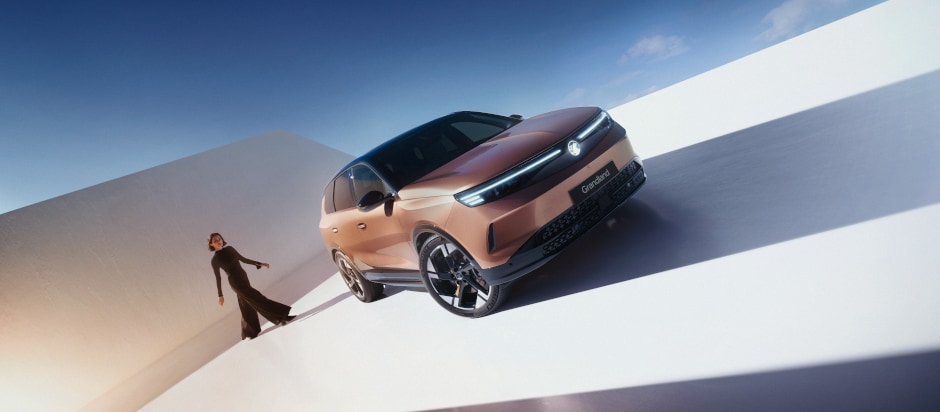
Think about space and distance
Having the right number of seats makes all the difference. So if you have a dog, play golf or use your car for holidays, consider a 4 or 5-door model. And don’t forget: fold down seats, a tailgate and handy storage make things more convenient.
It also worth considering how far you drive. If you’re a townie driving a few miles each day, you probably need a smaller car with parking sensors, for tight spaces. And if you drive a lot, you’ll probably want 6-speed transmission and sports seats for added comfort.

Safety
Vauxhall cars put your safety first. Active features include anti-lock brakes and electronic stability systems, to help you avoid an accident. Passive features include crumple zones, seat belt pre-tensioners and airbags to protect you in the event of a crash.
While we’ve done most of the thinking for you, there are a few things you should think about. For instance, if you have a young child, you’ll need to be able to de-activate the passenger airbag, so you can fix a rear-facing child seat in the front.

Extras
Whichever Vauxhall you choose, you’ll find the standard model has plenty to offer. But if you want additional features, please refer to the brochures or use our vehicle personaliser.
It’s also worth bearing in mind that models with higher levels of trim and more features as standard offer good value for money and can be easier to re-sell. And if you decide to handpick your accessories, remember to take your time, consult your retailer and allow time for the accessories to be fitted.

Engines & environment
Choosing between a diesel and petrol car can be tricky, but here are our key tips to help you. Both types of engine have been refined over the years and their respective fuel prices are now quite similar. Servicing costs for each engine are also similar, especially with our range of fixed-price services.
Petrol engines are usually better for short journeys, if you’re driving in cities and towns, rather than on motorways. Petrol engines are also smoother and quieter than diesel, and over their lifetime need less maintenance.
Diesel engines are generally better for long journeys and motorway driving, offering more torque than a petrol engine. Diesel models can be more expensive as a result. Refinements mean the engines aren’t as loud as they used to be, as our 1.6CDTi Whisper Diesel engine shows. Diesel engines also produce less CO2 and so are subject to less car tax. This and their suitability for long journeys mean diesels are popular among company-car drivers and those who do a high mileage.

Getting a good deal
You’ll find the best deals at Vauxhall Retailers, which run Vauxhall offers as well as their own retail offers.
Vauxhall offers make it easier to buy your next vehicle with plenty of packages to choose from, be it single or monthly payments, or whether owning the car at the end of the term is important for you. Check out our full range of offers here.
Retailer-specific offers can be found by visiting Retailers in person. Find your nearest Retailer. Alternatively, you can request a quote to see what deals they have.

Test drive tips
Buying a new vehicle is a major investment – so take a test drive and ensure your future vehicle meets your needs. Here’s a list of things to consider when you visit your Retailer:
- Bring both parts of your driver's licence (and for anyone else who will test-drive the car)
- Arrange your test drive in advance to avoid busy times
- Take your time to get comfortable and adjust the seat, steering column, mirrors etc.
- Be clear about the layout of the controls, including wipers, indicators and lights, before you head out on the road
- Take your MP3 player and/or CDs with you to test the car's music system
- Ask to use roads you’re familiar with, to allow you to think about the vehicle
- Make sure you cover all the road types you regularly use: ‘A’ roads, country roads etc.
- Take your family: make sure it's not just the driver who will be happy
- If you have a particular need for a vehicle, make sure you try it with that in mind
- Make sure you try everyday manoeuvres like reversing and parking
- Ensure all intended drivers can test the vehicle
- See how easy it is to find key points under the bonnet
- If the car you try isn't the exact specification you’re looking for, make sure you get an explanation of the differences.



